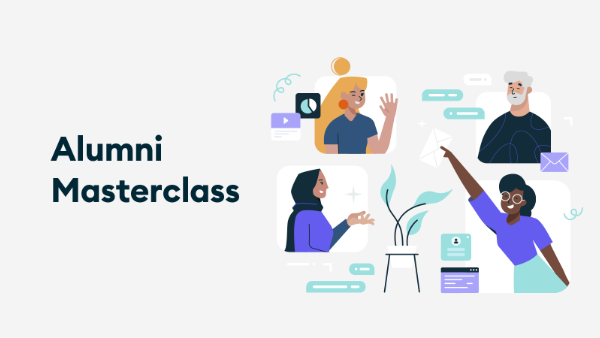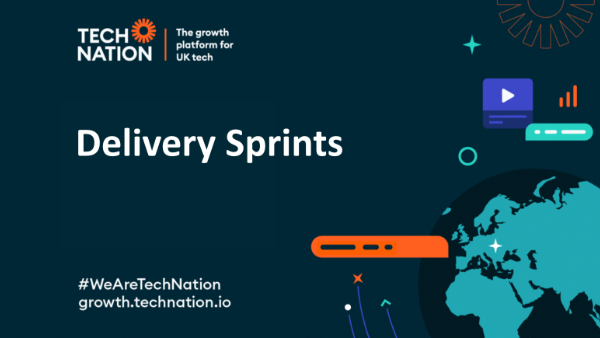Scaling a Business as a Sole Founder

Getting a business off the ground is hard enough at the best of times - but what is it really like when you’re doing it all on your own?
Will Britton, Founder and Chief Executive of AutonoMe has first hand experience with this as a sole founder.
The man with all the hats at AutonoMe’s inception discusses the relinquishing of power, navigating scaling the business, and the most important trait every sole founder needs.
The realities of being a sole founder
AutonoMe is a mission-driven company; its primary mission is to help people with learning disabilities and autism make progress in their lives - whether that be cooking skills, employment or any other aspect of their lives.
As a sole founder you do everything - especially at the start when you don’t have any money, “well, I didn’t have any money,” Will jests.
He says: “You have to build the product, deliver the product, build your operations, your accounting, your business development, you’re the CTO, you're everything.
“You need a strategy about how you will relinquish a lot of those roles over time and get an action plan in place, but there's pros and cons.
“You have all the shares at the start, and you need to think strategically about what your investment strategy will be, and how much you would need to get to the next stage of the business.”
Will admits that as your stake becomes more diluted, and you don’t own 100% of the business, you need to ensure the people coming onto the board understand the mission and what you’re trying to do as you grow.
“I think going into it, I certainly had a lot of naivety and as I built up my skill set slowly, becoming more confident in my ability to grow the vision into a company.”
Navigating scaling the business
Very early on, Will says, he became hyper aware that his strengths were in building a good product for his cohort [of students with learning disabilities he taught at a Further Education college], namely as he knew the cohort very well, and realised he could build a decent product for their needs.
Will says: “What I really didn't know was the business side of this market. I'd never created a business before so I became hyper aware that I had a lot of self-education to do at that point.”
He also admits he became hyper aware of his lack of access to capital, so he had to do a lot of scrimping - and by that he means taking advantage of free stuff and maxing out credit cards, Will laughs.
“Personally, the first three years were really financially challenging. I didn't know what investment was, what it meant, or how it worked. So, there was a lot of educating myself in that space.”
But one key piece of advice from the sole founder, Will says, was that he had to keep reflecting back as to what it was he actually wanted.
“What did I want the company to look like in 10 years time? Is it a lifestyle business? A business business? Is it just a consultancy thing?
“What do I want to achieve? What do I want the company to achieve? And then work backwards from that. Knowing where I saw myself in that scenario was really useful,” Will adds.
A lot of that thinking was achieved through an incubator which helped Will work back from that end-goal scenario and create a path.
But above all, Will says the incubator helped him be more aware of not just where his strengths lie, but his weaknesses too.
He says: “It taught me how to hire for my weaknesses as soon as possible; where to go to try and find those skill sets.”
But the best part about working with an incubator, is that people could be brutally honest with Will about his product.
“I'm very happy to be told that I'm wrong. I'm very happy to try new stuff and learn from mistakes.
“I would rather someone was really brutally honest so I can fix it. So that experience helped AutonoMe a lot,” he says.
Changing business models as you grow
Will says the main thing that changed quite early on for him was his realisation that the way he delivered support to users with the product wasn’t necessarily the same as how others would deliver that support.
For example, Will says when supporting someone using the app in the beginning, because he had worked on the app and developed it, he had a bit of an advantage.
“I was looking at it through the prism of how I support them, and not the prism that a lot of support workers can be apprehensive about technology or not be technology confident.
“I learned very quickly through some piloting that there was a digital transformation that needed to happen in the Learning Disability and Autism sector, and continues to need to happen, and it's slowly happening which is really encouraging.”
The main changes to AutonoMe’s business model started early on when they created the Development Coordinator role - which was key to ensure AutonoMe would be a sustainable entity that delivered outcomes over long periods of time.
“That changed the model quite a lot. It changed the price we had to charge for AutonoMe because we had to think about what the company would look like at scale.”
As AutonoMe would have Development Coordinators dotted around the country, they needed to think about how to create a salary band; how to recruit and retain; how to attract potential staff from other jobs as AutonoMe was in its infancy; where the role sat in the market.
“I knew the market, and experienced firsthand what it was like to work really close with people with learning disabilities - you have to be a support worker, a teaching assistant, work coach etc, and the wages aren't much above minimum wage. These are roles that I feel strongly are stressful and undervalued jobs in society.
“Through the Development Coordinator role, we've been able to create a job that enables people to be really close to the front line, and be responsible for a huge number of people with learning disabilities and autism, but also have a professional wage scale that people can live on and that has a career pathway.
“We wanted to hire people for a role where they could love the job and keep it because it's well salaried, and they could still support a lot of people. That was a really important thing for us,” Will says.
The most important attribute founders need
Will says, bar none, that the best attribute is communication.
“If you can't communicate verbally with people what you want to achieve with your solution, you’re going to find it incredibly challenging to really get something going.
“I've been at events where some people have great innovations and they've got way more traction, but they're not grabbing your attention, they’re really shy or reading off a prompt. But that's a personality trait.
“If you don't have it, be hyper aware you don't have it, find someone that does and can do your communication bit for you.
“If you are so anxious, you don't want to stand on stage and give an elevator pitch, don't force yourself to do it. Find someone that will do that for you and can communicate that excitement, because selling your vision early on the lifecycle of the business is mostly about feeling.”
The importance of communication only continues to grow as you scale.
“You've got to explain strategies to the company; communicate with the board, and all sorts of other things. Hands down, communication is a super, super useful skill that you just don't learn in school, it’s just something you pick up in life.”
Raising investment: Founder advice
When Will started raising finance, he didn’t have an investor network or affluent family members, so says he was unable to do friends or family rounds, for example. So he spent the first year building an investor network.
“The most difficult round was the first investment, because I didn't have an idea of how to build networks.
“That year, I probably put in 30,000 miles in the car. I was just travelling around the country meeting people.
“I would 100% say meet investors face-to-face - there could not be a more valuable relationship builder than face-to-face.”
Once you have potential investors in mind, Will says you should build a strategy for who you want and really don't want to invest - and then send your deck to the people you don't want to invest.
He says: “This allows you to try your deck, get critiques, learn from it, and get experience from that to refine it and then send it to the people you do want to invest in your product.
“Rejection is a massive part of investment, right? Getting used to rejection is a big thing.”


